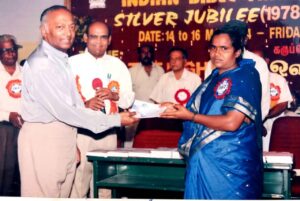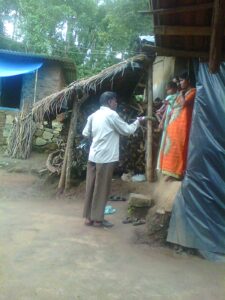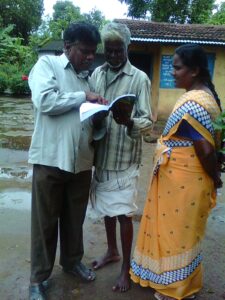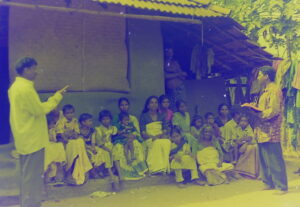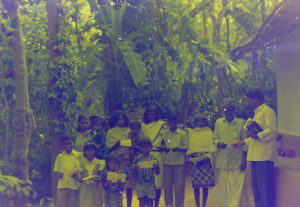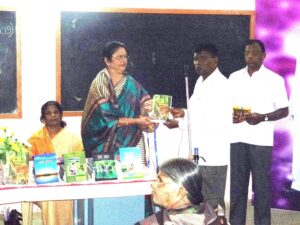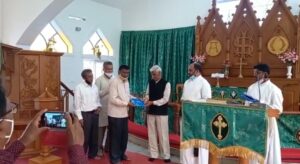Paniya Project
History of Paniya People
The city of Gudalur is located at the junction of the Tamil Nadu, Kerala, and Karnataka states. In this mountainous region, a tribal community known as the ‘Paniya’ resides. Their ancestors were Negros who lived in South Africa. During the era of British rule in South Africa, those Negros who committed offenses were treated as slaves and imprisoned for many years. Upon their release, they were transported by ship to the islands of Madagascar and India, arriving at the Cochin seaport in Kerala. At that time, the British also ruled over many parts of India. Those who arrived in Cochin were employed in manual labor at the seaport and came to be known as ‘Paniya’. A small group among them escaped and settled in an area called Wayanad, near a place known as Thanraser, where they lived for several years in the mountains, caves, and huts made of grass. They wore leaves to cover their bodies and used tree bark around their waists. To remember this past lifestyle, these people continue to wear clothing in red, black, and blue colors.
After some time, they migrated to various mountainous areas, including Mudumalai, Coorg, Pattavayal, Pandalur, Ayyangolli, and the Gudalur tea estates, located in the states of Kerala, Tamil Nadu, and Karnataka. Their huts were constructed from mud, bamboo, and wooden planks, with roofs made of grass. Many families settled in specific locations, creating their own communities known as ‘Paniapadi.’ In forested areas, they would establish their homes along the banks of rivers. However, during the rainy season, their huts were often damaged by floods. In response, the government provided them with building materials for repairs. While their huts were being repaired, they were accommodated in government schools. The population of these people are 98,584. The majority of them follow Hinduism. The Christian population is 0.38%.
Food habits of Paniya People:
The Pania people primarily enjoy a diet that includes rice, pulses, chicken, and wheat kanji. They typically boil vegetables that are cut into pieces before consuming them. While working in forested areas, they gather whatever is available from the ground, which they then burn over a fire and eat. Interestingly, this same food is also consumed by wild pigs.
Occupation of Paniya People:
The primary occupation of the Paniya people is farming in the fields. In addition to agriculture, they work in tea estates, harvest coffee seeds, collect pepper from vines, and gather firewood in the forests for sale.
Cultural Practices of Paniya People:
These individuals are unafraid of forest animals and even kill snakes casually. They possess a deep piety towards God and willingly serve their gods, believing that their gods are the spirits of deceased men and women. On the third day after a death, they erect a pillar in front of the house, celebrating with music and dance. This ritual continues for the first and second years following the death, as they believe the spirit of the deceased will visit them. The pillar is adorned with the clothing of the deceased, and afterwards, they demolish the house and relocate to a new place to live.
Chief festival of the Paniya people:
Every year in September, when the corn is ripe for harvesting, the Paniya people go to the fields to reap the mature corn. They bring the harvested corn to the temple as an offering to their god, after which they celebrate the festival with dancing. This festival is particularly celebrated for five days in the villages of Pokkapuram and Moyar, during which they also perform sheep sacrifices.
Education of the children:
These parents admit their children into schools with the hope of providing them with a better future. However, most children only attend school until the second standard before skipping classes to engage in activities like catching fish and crabs in the rivers. Even when the children are placed in hostels to prevent such dropouts, they typically stay for only two or three days before escaping to return home.
IBT Ministry among Paniya People:
Since 1992, Bro. Thambi Durai has been appointed as the IBT missionary in Odisha and Madhya Pradesh along with his wife, Sis. Elizabeth. IBT has initiated missionary work among the Paniya people in Gudalur, Tamil Nadu. Therefore, they were transferred to Gudalur in 1999 and started learning the Paniya language and doing missionary work among them. Along with Gospel ministry, they were doing social work by conducting tailoring classes for the Paniya people.
Bible Translation:
God has given Rev. Prof. Panneer Selvam the vision to translate the Bible into the Paniya language. In response, IBT appointed Sis. Elizabeth and Bro. Soriyan as translators for this project. In 2003, they underwent Mother Tongue Bible Translation training and began their translation work in the Paniya language. As a result, on May 15th, 2004 the Gospel of Mark in Paniya was released at the IBT Silver Jubilee camp- Karunya Nagar, Coimbatore by Rev. Marcus along with Prof. Paneer Selvam. They then started distributing the Gospel of Mark to the Paniya people.
Published Books:
The Gospel of Mark in Paniya was released at the IBT Silver Jubilee camp- Karunya Nagar, Coimbatore by Rev. Marcus along with Prof. Paneer Selvam on May 15th, 2004. These books were distributed to the Paniya people. In 2007, the Gospel of John was released at St. John’s Church in Gudalur. Following that, the Gospel of Luke was released by Rev. Stanley on May 18, 2013, at the LOGOS camp in Danishpet, Salem. The New Testament was subsequently released by Mrs. D. Sudandiradevi Panneer Selvam on June 2, 2016, at the IBT Centre in Coimbatore. Inmidts of opposition, the translators continued their translation and completed the translations of the books of Psalms and Proverbs. These translations were released on October 11, 2021, at CSI Nalmetppar Church in Gudalur. Currently, the distribution of the Bible in the Paniya language is ongoing, along with the revision of the New Testament. Mr. Thambidurai and Mrs. Elizabeth are the translators of this project.
Oppositions:
In 2005, the Paniya people from Kollivayal opposed the distribution of the Gospel of Mark and attacked our missionaries. Despite this challenging situation, by God’s grace, the translators continued their translation and Bible distribution. In 2016, some Paniya people opposed our missionaries’ translation work in the Paniya language because the missionaries belonged to a different community. The opposition is continuing still. Therefore, please continue to pray for the distribution of the released books in this language to the Paniya-speaking people and their salvation.
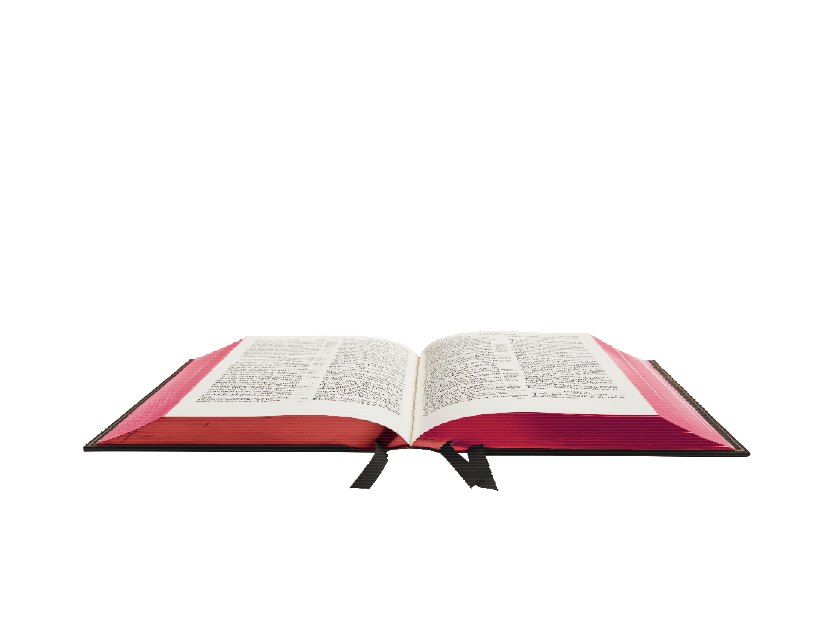
Indian Bible Translators
14 Ashok Layout,
Civil Aerodrome Road,
Coimbatore – 641 014
- 90470 57414
- 90470 57414
- 0422 - 4520123
- info@ibtword.com
- indianbibletranslators@gmail.com
- Privacy Policy
Donate now by scanning our UPI QR code
through your payment apps.

© Copyright IBT | Designed and Developed by Pixtornet

